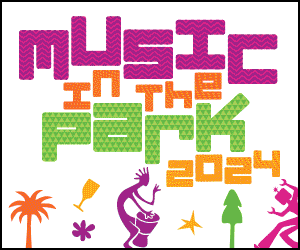 New website provides a forum for reviewing businesses based on accessibility
New website provides a forum for reviewing businesses based on accessibility
For people who live with a disability, going to stores, restaurants and other places of business without knowing whether or not they can access the building or its facilities can be a shot in the dark.
Whether a person’s disability is physical or mental, not having sufficient information about a destination can be a source of intimidation and frustration.
To help reduce that uncertainty, 28-year-old UC Santa Cruz alumna Amy Sheppard, who lives with cerebral palsy and has used a wheelchair her entire life, created AmysAccessReports.com—a website whose concept is similar to Yelp.com, but reviews businesses based on their accessibility.
Users can register on the site, make a profile, define their disability if they so choose, and upload reviews and photos for businesses in cities across the nation.
Sheppard’s plan is to take the guesswork out of traveling for disabled people and promote businesses that make access hassle-free.
“This site is set up so people with special needs can travel and know those needs will be met,” says Sheppard, who lives in Santa Cruz.
Most modern businesses and their structures satisfy Americans with Disabilities Act (ADA) requirements, but Sheppard explains that ADA-compliance does not always mean accessible or usable for someone with specific needs.
“As a person with a disability, you grow up saying, ‘OK, well, it’s ADA accessible, but what does that really mean?’” Sheppard says. “What I’m trying to do with the site is create an environment where some of those questions are eliminated.”
The idea for an accessibility review site occurred to her about a year ago during a trip to San Diego for a friend’s wedding. Sheppard requested a bathroom with a roll-in shower in advance from the hotel, but the receptionist told her they didn’t have anything like that. Upon arrival, Sheppard discovered that the hotel did have a room with a roll-in shower and management could have simply switched her room.
 “I realized that that happens a lot,” Sheppard says. “What I was told and what was actually there were two different things. Most [non-disabled] people really have no idea about the difference between what’s up to code, and what’s really usable.”
“I realized that that happens a lot,” Sheppard says. “What I was told and what was actually there were two different things. Most [non-disabled] people really have no idea about the difference between what’s up to code, and what’s really usable.”
For example, a bathroom may be legally accessible, but if the sink is right next to the toilet, it is unusable for Sheppard, who must do “lateral transfers” from her chair. Similarly, businesses with ramps meet accessibility requirements but that doesn’t mean they are necessary user-friendly for Sheppard: the height and steepness of ramps, and if they have guard rails, is a serious safety concern for her.
Zach Woodford, a 31-year-old student at Monterey College of Law and a wheelchair user, says not knowing firsthand about the accessibility at destinations is a major source of anxiety. He usually calls ahead, but that is not always enough.
“Often you’ll be told a place is accessible, but when you get there, you’ll find that, in fact, their definition [of accessible] is far removed from what you’d expect it to be,” he says. “This site would allow people to cue in on where other people’s ideas of access and real access really need to converge.”
Sheppard, who graduated from UCSC in 2007 with a degree in psychology, has been developing Amy’s Access Reports for just over a year and started promoting it about a month ago. She currently writes the majority of the reviews but hopes others will begin contributing more soon.
The main obstacle to this, she says, is that it is difficult for some people to share openly about their disabilities. Unlike a Yelp review, these posts involve opening up about personal limitations that not everyone is comfortable talking about.
“It’s a sensitive subject for a lot of people. But once they get comfortable with the idea, I think [the site] will take off,” Sheppard says. “Everyone has their own perspective, and we want to know what that is. It’s very valuable.”
Amy’s Access Reports currently has about 30 members, most of whom live in Santa Cruz County and the Bay Area, Sheppard says.
Sophia Hurst, a Santa Cruz resident who knew Sheppard prior to launching the site, joined AmysAccessReports.com and has written several local reviews.
Hurst was born with spina bifida, a congenital malformation in the spine that requires her to use leg braces and crutches while walking.
She says some of the problems in accessing places include lengthy or narrow staircases, low toilets, and heavy doors.
When Hurst travels to new places, she says she just hopes for the best.
“It sucks when you’re intimidated about going somewhere,” Hurst says. “When [Sheppard] told me about the website, I thought, ‘Why didn’t someone think of this before? This is awesome.’”
Sheppard’s goal is to make Amy’s Access Reports a nationwide tool. She explains that the more people who use it and write reviews, the more effective it will be.
Membership is free and Sheppard intends to keep it that way. She plans to fund the operation with advertisements.
Sheppard explains that the plan relies on disabled people across the country getting on board and writing about their experiences.
“I’m really hoping people start contributing,” she says. “I can’t do it without everyone getting involved.”













